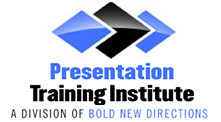Filler words like “um” and “uh” may seem natural in everyday speech, but they do not belong in formal presentations. The fact is, however, that even the most seasoned speakers sometimes find it hard to eliminate these words when they are giving a presentation. That’s because filler words are so common in our natural speech patterns, and we often use them when we are thinking of what to say next. These filler words are simply sounds or phrases that don’t have any context, but simply “fill” in the space while the person is talking. If you want to sound like a polished speaker, you need to learn how to eliminate common filler words from your presentation. Here are some helpful tips for speaking more precisely.
Practice and Prepare
Many people tend to use filler words such as “um,” “uh,” and “so” when they are nervous. The best way to combat your nervousness and avoid filler words is to practice and rehearse your presentation multiple times. The more you practice, the more familiar you will become with your content, which will reduce the need for filler words.
Slow Down
Again, it is common for people to speak quickly when they are nervous. Unfortunately, speaking too quickly can lead to more filler words. Instead, slow down, take your time, and speak at a comfortable pace.
Pause
When you are tempted to use a filler word, try pausing instead while you gather your thoughts. Pauses can be an effective way to hold the audience’s attention while you are considering what to say next or even emphasizing a point.
Be Mindful
Be mindful of when you use filler words and actively work to eliminate them. Awareness is the first step in making a change. One way to do this is by recording yourself and paying close attention to how often you use filler words. Go back and keep rehearsing until you can present with little or no filler words at all.
Use Visual Aids
Visual aids such as slides or props can be a great way to help guide you through the presentation and reduce the need for filler words. They are useful in helping you stay on track and remember the key points that are important.
It can be hard to break old habits, but eliminating filler words will help you engage your audience, build credibility, and sound like a more polished speaker. For more tips on how to deliver a great presentation, consider enrolling in one of our Presentation Training courses. Let us help you learn the skills needed to eliminate filler words and communicate your message more clearly. Call today to learn more about our Presentation training courses!
